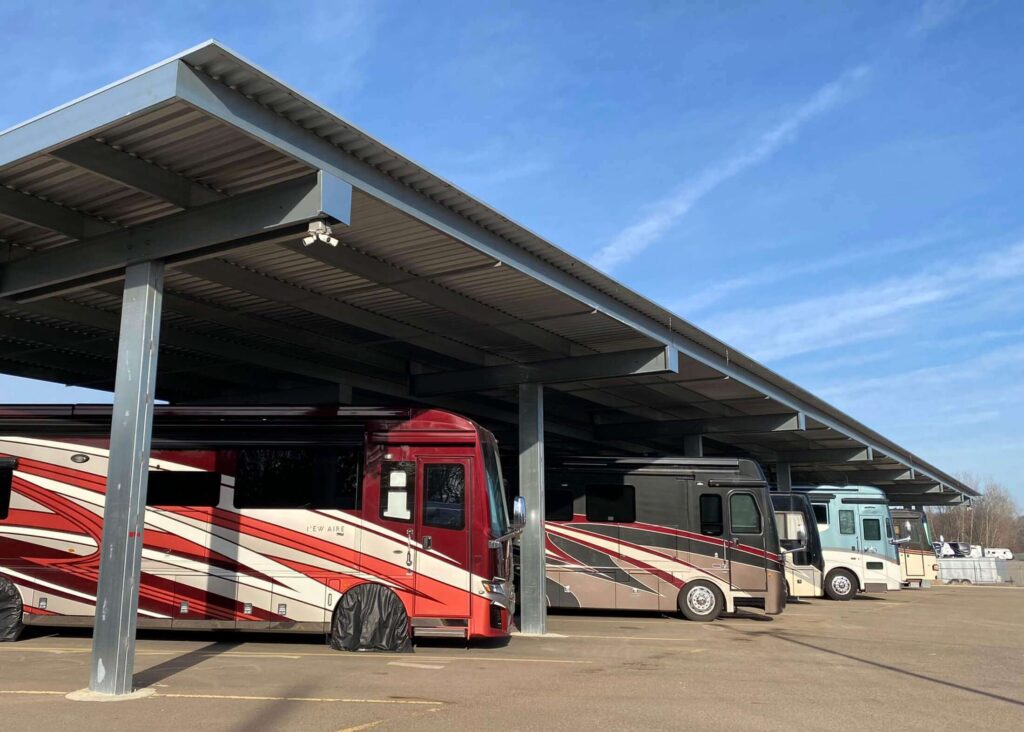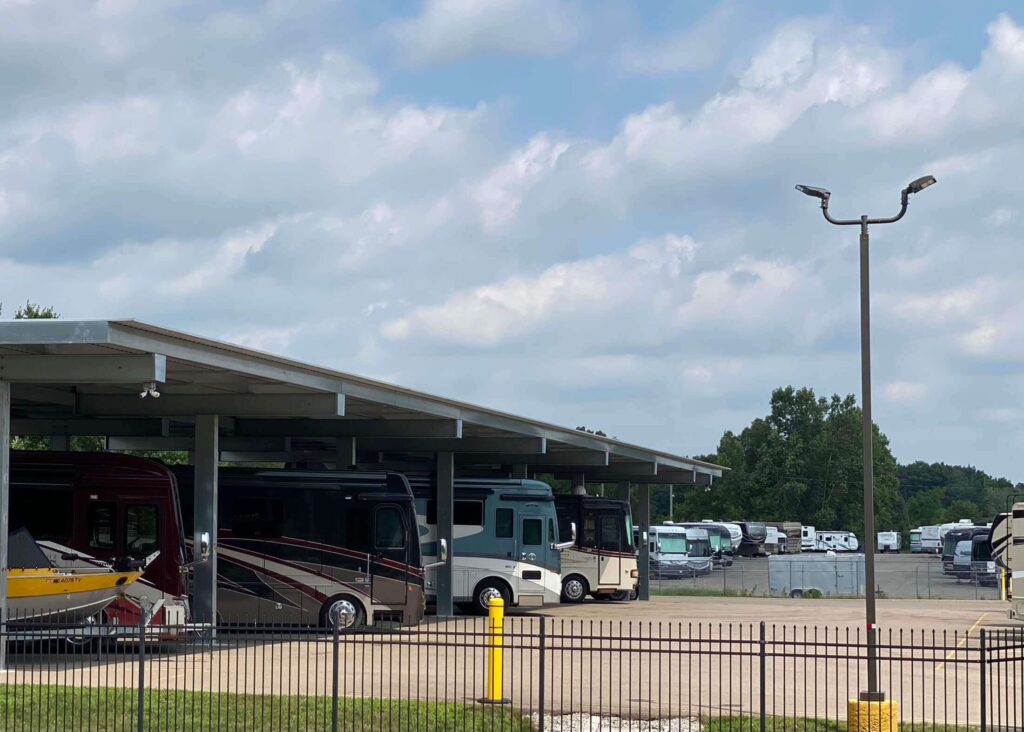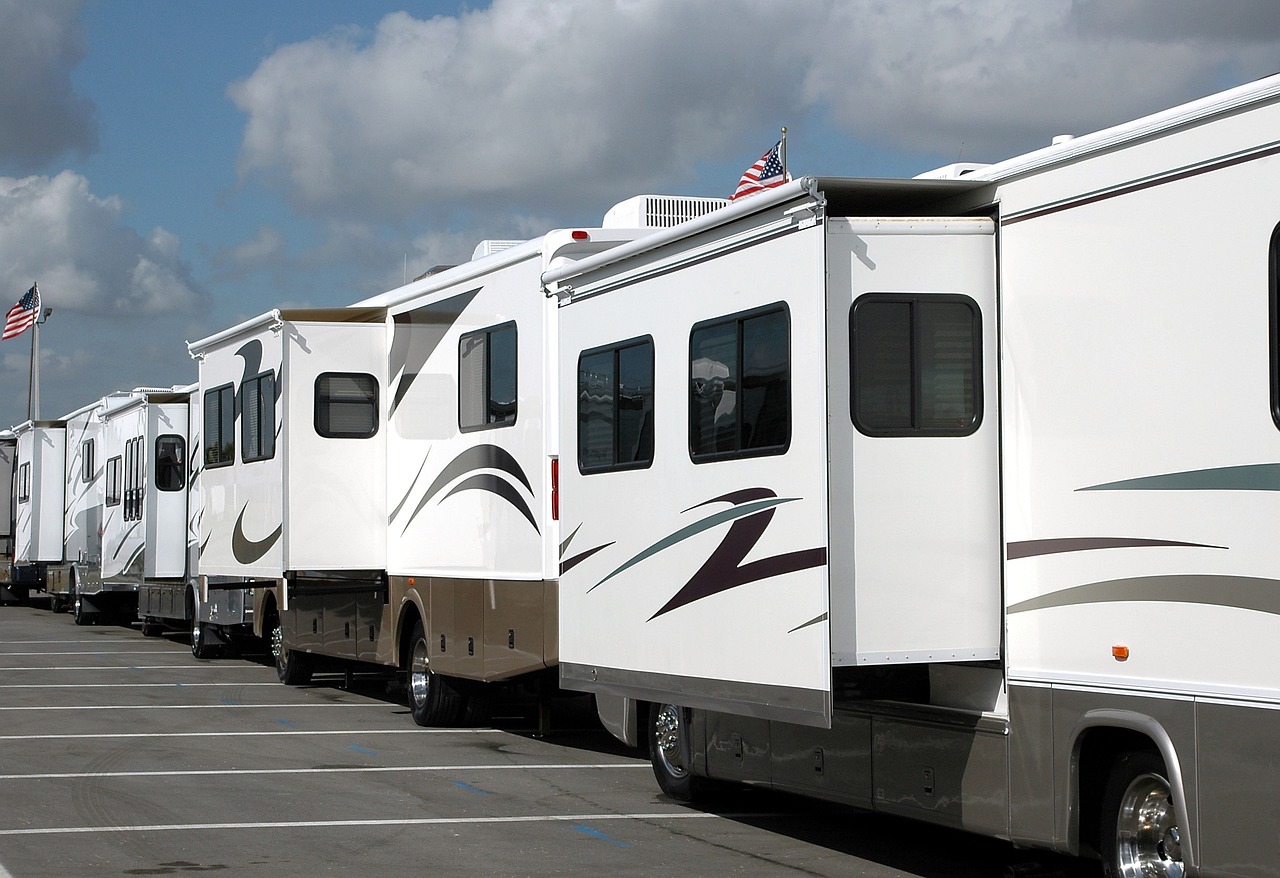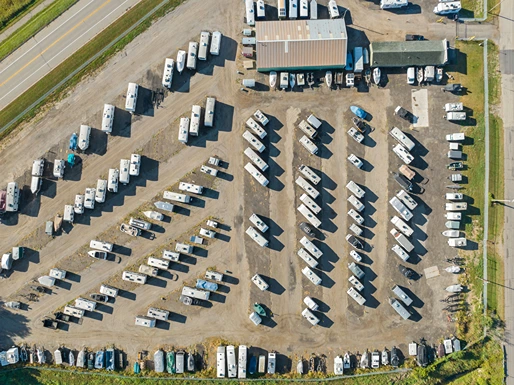When it’s time to store your RV, you want to take a few careful steps. Preparing for RV Storage can help keep it in good condition and ready for your next adventure. Below is a pre-storage checklist to guide you through the process. Follow these tips to reduce the chances of any issues developing during RV Storage.

1. Clean the RV Inside and Out
Before making use of RV Storage, cleaning yours thoroughly is a good starting point.
- Exterior Cleaning: Wash the exterior, including the roof, walls, and windows. It’s important to remove dirt, bugs, and debris to prevent any build-up over time. Many owners also apply wax to help shield the exterior from the elements.
- Interior Cleaning: Inside, sweep the floors, wipe down surfaces, and clean out any appliances. Leaving food or crumbs behind can attract pests, which could damage the interior. Make sure the fridge and cupboards are empty.
Taking the time to clean your RV before storage can help you avoid unnecessary wear and tear during RV Storage.
2. Address the Tires
Tires are a key component when preparing for RV Storage.
- Inflate to the Right Pressure: Check your tire pressure and ensure each one is inflated to the recommended level. Tires tend to lose air when they sit for long periods, so it’s useful to keep them at the proper level beforehand.
- Avoid Flat Spots: You can also place your RV on blocks or tire covers to prevent flat spots. Flat spots occur when the RV sits in one place for too long, so rotating the tires every few months may also help.
A little attention to your tires can keep them in good condition during storage.
3. Check and Disconnect Batteries for RV Storage
Your RV’s batteries need some special care before going into RV Storage.
- Battery Charge: Fully charge the batteries before storage. This applies to both the engine battery and the house batteries. Batteries can slowly lose charge over time, so checking them ensures they are in good shape before storage.
- Disconnect Batteries: To prevent the batteries from draining, consider disconnecting them or using a battery disconnect switch. Some people even remove the batteries entirely, especially for longer storage periods.
Taking these steps can help extend the life of your RV’s batteries.
4. Drain the Water System before RV Storage
One important step is managing the RV’s water system.
- Drain Freshwater Tank: Make sure to empty the freshwater tank. Water left in the system can become stagnant or freeze during colder months.
- Empty the Waste Tanks: Don’t forget to dump the gray and black water tanks as well. Flushing them with fresh water can help reduce any lingering odors.
- Add RV Antifreeze: If you live in a region with cold temperatures, consider adding RV antifreeze to the plumbing system. This can prevent any water from freezing and causing damage to pipes.
Draining the water system helps prevent any water-related issues during RV Storage.
Get in touch HERE to learn more and explore RV storage in Mason City, Iowa. We’ve got you COVERED!
5. Protect from Pests
Pests can cause significant damage to your RV if not properly managed before RV Storage.
- Seal Gaps and Openings: Check for any openings or gaps where insects or rodents could enter. This includes the undercarriage, vents, and doors. Sealing these can reduce the likelihood of pests getting in.
- Use Pest Deterrents: You may also consider using pest deterrents like mothballs, traps, or specific RV pest repellents to help keep them away.
Being proactive about pest control can protect your RV from unwanted visitors.
6. Prepare the Fuel System for RV Storage
A little attention to the fuel system can go a long way when preparing your RV for storage.
- Add Fuel Stabilizer: Adding a fuel stabilizer helps keep your fuel fresh during storage. This can be particularly useful for longer-term storage. It prevents the fuel from breaking down and causing issues later.
- Run the Engine: After adding the stabilizer, run the engine for a few minutes to circulate the treated fuel through the system.
Taking care of the fuel system can help maintain the RV’s performance after storage.
7. Cover the RV
Covers are a simple way to protect your RV from external elements during storage.
- Full RV Cover: If your RV will be stored outside, consider using a full RV cover. These covers help protect against UV rays, rain, dust, and debris.
- Tire Covers: Don’t forget to cover your tires. Sun exposure can cause them to crack over time.
Covers can be a valuable investment to keep your RV looking fresh.

8. Ensure Proper Ventilation during RV Storage
Airflow inside your RV is important for avoiding mold and mildew.
- Open Vents: Keeping a few roof vents slightly open can help with air circulation. Some owners use vent covers that allow air to pass through while keeping water out.
- Use Moisture Absorbers: You might also place moisture absorbers inside the RV. These can help capture any excess humidity and keep the interior dry.
Good ventilation can prevent unpleasant odors and moisture build-up during storage.
9. Check Security Measures
It’s always wise to ensure your RV is securely stored.
- Lock All Doors and Windows: Before leaving your RV, make sure all doors and windows are locked. Don’t forget about compartments and storage areas.
- Use Security Devices: Some owners install wheel locks or steering wheel locks as additional security measures.
Keeping your RV secure can give you peace of mind while it’s in storage.
10. Inspect the Roof and Seals
Lastly, inspect the roof and any seals before storing your RV.
- Check for Leaks: Look for any signs of water damage or potential leaks, especially around vents, skylights, and air conditioners. Resealing any problem areas can prevent water from getting in.
- Maintain the Seals: If you notice any cracked or damaged seals, you might want to repair them before storage. Well-maintained seals help keep your RV watertight.
- A thorough inspection can help catch small issues before they turn into larger ones.
Conclusion
Preparing your RV for storage can be a straightforward process when you follow a checklist. Taking the time to clean, maintain, and inspect your RV beforehand can help keep it in good condition. While no method is foolproof, these steps can reduce potential risks and help ensure that your RV is ready to hit the road again when you are.
Call us NOW to secure your prized RV in Mason City, Iowa RV and Boat Storage. Iowa’s top choice when it comes to RV Storage.
Disclaimer:
The information provided is intended for educational purposes only and should not be taken as advice nor are there guarantees of any kind.


